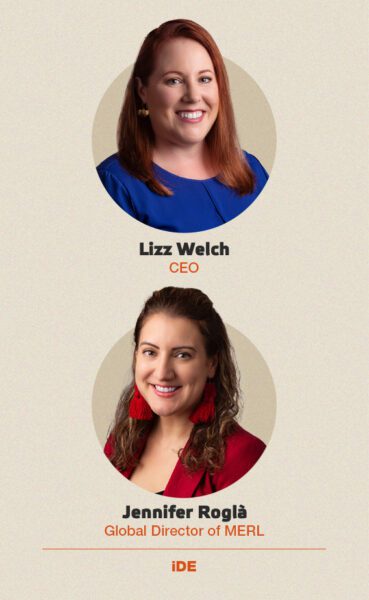Experiential Learning for Sustainable Development
Ignite India’s tailored, place-based approach
Build it and they will come

First available in 2016, equity crowdfunding, with the final implementation steps of the 2012 JOBS Act, opened the door for equity crowdfunding platforms like Wefunder, Crowdfund Mainstreet, Republic, Start Engine, among others. Acting as infrastructure and intermediary, crowdfunding platforms for equity crowdraises are what we need to build an impact economy.
Beyond the more familiar, donation-based crowdfunding platforms like Kickstarter or even Go Fund Me, which have, themselves, had an enormous impact on the ability to raise funds, equity crowdfunding gives both underserved entrepreneurs and investors an ability to build wealth. The legal environment to support this kind of infrastructure is a big step forward for an impact economy.
Crowdfunding platforms are successful for entrepreneurs, but we need ways to better engage investors too.
Only .3% of the population self-identifies as an investor.
According to impact economy thought leader and Crowdfund Mainstreet cofounder, Jenny Kassan, only .3% of the population self-identifies as an investor. The low number results from legislation designed to discourage speculation after the stock market crash of 1929. As a result, people have learned to play it safe. But perhaps safe is too safe.

The JOBS Act resulted in crowdfunding platforms positioned to overcome this decades old structural inertia. Suddenly, we had means and opportunity to raise funds from and for our communities. But to further build capacity, we need to increase self-identified investors to a much higher number than .3%.
One positive, emerging trend to increase this number is crowdfunding platforms that go beyond support for entrepreneurs to offer new teaching communities designed to guide investors through a due diligence process with hands-on training. Wefunder and Crowdfund Mainstreet (in collaboration with the Angels of Main Street investor community) are among the first crowdfunding platforms to offer due diligence for their investor communities. Both offered an initial cohort in 2021. (Full disclosure, I took part in both cohorts).
Time has done little to ease the gap between passionate social entrepreneurs running impact enterprises and confident investors with the funds they so desperately need to bring their ideas to fruition.
The approach for each cohort differs, but the intent to grow a confident investor pool resonates for both. As Head of Community for Wefunder, Eric Lin describes it, “the strategy behind the investor due diligence model draws on the Home Depot model: if you build better home builders, they will build the market for everybody. Some may go to competitors, but overall, the market will be better. It works the same for investors.”
Both Wefunder and Crowdfund Mainstreet platforms represent a new type of finance. Eric Lin hopes Wefunder becomes a platform known for community fundraising rounds, not simple equity crowdfunding. A similar sentiment is built into Crowdfund Mainstreet’s DNA.
 Though Wefunder is a B Certified, Massachusetts Public Benefit Corporation with a mission to “fix capitalism,” the platform is not only focused on mission-driven companies, and partners with accelerators like Y Combinator or Start Coop. It does, however, serve many social entrepreneurs, and offers investors an easy search feature to find mission-driven companies for investment. Impact investors, known to value more than single bottom-line profits, are an important cohort for Wefunder.
Though Wefunder is a B Certified, Massachusetts Public Benefit Corporation with a mission to “fix capitalism,” the platform is not only focused on mission-driven companies, and partners with accelerators like Y Combinator or Start Coop. It does, however, serve many social entrepreneurs, and offers investors an easy search feature to find mission-driven companies for investment. Impact investors, known to value more than single bottom-line profits, are an important cohort for Wefunder.
Alternatively, Crowdfund Mainstreet, a Delaware Public Benefit Corporation, is entirely focused on social entrepreneurs. Crowdfund Mainstreet’s mission to democratize finance draws on the founder’s many years of experience assisting mission-driven businesses fundraise off-line. The platform grew out of that early experience and is designed to make it easier for mission-driven businesses to connect with investors. Michelle Thimesch, co-founder of Crowdfund Mainstreet says, “Crowdfund Mainstreet is a funding portal…. That’s really important, not just for businesses that are looking to raise capital, but also for people who are looking for ways to build wealth…. we’re talking about an entire ecosystem, and for an ecosystem to work, you need both the entrepreneurs and the investors”.
Crowdfund Mainstreet has fewer offerings than Wefunder and they benefit from hands-on technical support from the attorney cofounders, Jenny Kassan and Michelle Thimesch. According to Thimesch, the parallel community, Angels of Mainstreet, “identifies, educates, and activates people inclined to do direct investing but who need a path forward or are just interested in a community of like-minded individuals who want to vet deal flow.”
Many in this developing ecosystem, from impact investors to social entrepreneurs and founders of mission-driven enterprises, often feel discouraged in rooms with traditional angels and venture capitalists. Founders that don’t fit the typical demographic and education profiles find it nearly impossible to get access to investment, and impact investors sense the old way of doing things doesn’t meet the deeper need. The numbers bear them out.
These emerging, due diligence cohorts are a positive next step to heal the gap.
The mission to bring fund access and wealth building opportunities for all is well into its second decade. But time has done little to ease the gap between passionate social entrepreneurs running impact enterprises and confident investors with the funds they so desperately need to bring their ideas to fruition.
Alternatively, many impact investors disenfranchised by capitalism and traditional investment strategies have felt the siren call of an effective, value-aligned investment only to discover that after inspired vision comes a difficult, tactical implementation.
These emerging, due diligence cohorts are a positive next step to heal the gap. An educated, diverse, thoughtful investor community that is confident of its decision-making abilities for investment will invest in founders they know as well as enterprises that fit a developing investment thesis. Due diligence cohorts are a trend to celebrate and a direction to further advance.
Related Content
Comments
Deep Dives
RECENT
Editor's Picks
Webinars

Featuring
Lizz Welch & Jennifer Roglà
iDE
May 16 - 12:00 PM EST
News & Events
Subscribe to our newsletter to receive updates about new Magazine content and upcoming webinars, deep dives, and events.
Become a Premium Member to access the full library of webinars and deep dives, exclusive membership portal, member directory, message board, and curated live chats.
0 Comments